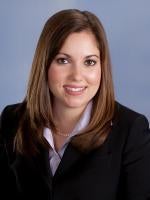I’m not exactly sure what caused her death," Victor Eloy, M.D., the deceased patient’s gastroenterologist, told the jury. Fakes v. Eloy, 2014 IL App (4th) 121100, ¶ 28.
This trial testimony of the gastroenterologist in a medical malpractice suit against him directly contradicted his deposition testimony in which he stated that to a reasonable degree of medical certainty the patient’s bleeding esophageal varices caused her death. In Fakes v. Eloy, the court held the defendant’s inconsistent testimony violated Supreme Court Rule 213, the rule requiring controlled expert witnesses to seasonably supplement their responses with new information.
Factual Background
On November 26, 2004, a 63-year-old named Laura Alice Powell, the decedent, sought emergency medical care after she vomited a considerable amount of blood. The next day, the decedent died as a result of a condition known as bleeding esophageal varices, which is bleeding of the veins in her esophagus.In November 2006, her estate filed a medical malpractice suit against Dr. Eloy and Internal Medicine Subspecialty Associates, Ltd.
Fakes called Dr. Eloy to testify as an adverse witness at trial. This occurs in almost every medical malpractice trial. Dr. Eloy is board-certified in internal medicine and gastroenterology. He testified that on November 22, 2004, five days before the decedent died, he examined her by performing an upper endoscopy and colonoscopy. Dr. Eloy’s pre-procedural diagnosis was that the decedent suffered from "cirrhosis of the liver secondary to hepatitis C." In Dr. Eloy’s procedural report, he diagnosed the decedent with a "grade II of IV esophageal varices."
When the decedent arrived at the emergency room ("ER") on November 26, 2004, the ER personnel notified Dr. Eloy. At about 11:30 p.m., Dr. Eloy examined the decedent. Dr. Eloy opined the decedent’s esophageal varices bled earlier but "had stopped bleeding by the time he examined her because decedent was not (1) vomiting blood, (2) passing blood clots through the rectum, or (3) experiencing ‘dark tarry stools,’ which were symptoms of such a condition." Dr. Eloy did not perform an upper endoscopy on the decedent. Dr. Eloy did admit performing that procedure would have revealed if she was bleeding or not. Dr. Eloy transferred her to the ICU and scheduled an endoscopic evaluation with variceal banding for 10:30 a.m. the next morning. In his report, Dr. Eloy partly diagnosed the decedent with "gastrointestinal bleeding suspect secondary to esophageal varices." Dr. Eloy was notified two times throughout the evening with new developments, with the latest one at 5:30 a.m. Dr. Eloy did not arrive until sometime after the decedent had died. His final diagnosis of the decedent’s condition was a "massive upper gastrointestinal bleed presumed secondary to esophageal varices."
Conflicting Testimony
At Dr. Eloy’s discovery deposition, he testified to a reasonable degree of medical certainty that he believed the esophageal varices bleed caused the decedent’s death. Yet, at trial the plaintiff’s attorney asked Dr. Eloy: "What is your opinion as to a reasonable degree of medical certainty as to the cause of [decedent’s] death?" Dr. Eloy answered, "I’m not exactly sure what caused her death. I believe that variceal bleed had something to do with it. But the clinical presentation, something happened to decedent around two o’clock in the morning that changed the clinical picture entirely." Dr. Eloy went on to testify, "I think it contributed to her death, but not the cause of her death." Dr. Eloy testified to the jury he did not offer any other cause of death in his deposition. Fakes objected to Dr. Eloy’s cause of death testimony at trial on the grounds it violated the disclosure requirements of Rule 213. The objection was overruled.
In March 2012, the jury returned a verdict in favor of Dr. Eloy, and an appeal followed. The appellate court addressed several issues, including whether Dr. Eloy violated Rule 213. Rule 213 mandates that a physician (or any other expert) may not testify to an opinion at trial unless that opinion has already been disclosed by a sworn interrogatory answer, an expert opinion disclosure or deposition testimony.
Defense Verdict Reversed
On appeal, the court first noted three undisputed facts: (1) Dr. Eloy was a controlled expert witness, (2) he opined at his discovery deposition that to a reasonable degree of medical certainty, the decedent’s death was caused by her bleeding esophageal varices, and (3) Dr. Eloy did not seasonably supplement or amend his prior deposition testimony as required by Rule 213(i). Fakes stated in her brief to the court that her claim was confined to Dr. Eloy’s statement that he was "not exactly sure what caused her death." In response, Dr. Eloy contended Fakes focused only on four lines of the deposition, and that his opinion did not "preclude additional opinions as to other contributing factors." Dr. Eloy reasoned it was "nothing more than extrapolation or a logical corollary of the opinions which he had already given, including that which was contained in the medical literature produced by him, and provided to Fakes at the time of his deposition."
The appellate court found Fakes was entitled to rely on Dr. Eloy’s deposition testimony. The court reasoned that if Dr. Eloy believed other factors contributed to decedent’s death, he had a duty to comply with the strict requirements of Rule 213(i) by supplementing his deposition. Therefore, the court held Dr. Eloy’s undisclosed testimony was improper under Rule 213.
The appellate court next turned to the appropriate remedy for the violation of Rule 213.The court noted three remedies are available, depending on the severity of the violation. "[T]he opposing party may move to (1) strike only the portion of the testimony that violates the rule, (2) strike the witness’s entire testimony and bar the witness from testifying further, or (3) have a mistrial declared."
Here, the appellate court noted the cause of the decedent’s death was critical in determining whether Dr. Eloy complied with the appropriate standard of care. Further, Fakes had the absolute right to expect Dr. Eloy to provide the same unqualified opinion testimony at trial as he did in his deposition, that to a reasonable degree of medical certainty, the decedent’s death was caused by bleeding esophageal varices. Instead, the court noted, Dr. Eloy provided several variances of this at trial. The court rejected Dr. Eloy’s argument that these versions were only an extension of his disclosed opinion.
The court concluded this type of violation, one where an undisclosed opinion on a critical issue is offered before the trier of fact, warranted a reversal of the trial court’s decision. Therefore, the court reversed the jury’s verdict in favor of the defendants and ordered a new trial.
Conclusion
Defendants and their attorneys must be vigilant to update their opinion disclosures if a physician develops new or different opinions than those contained in disclosures or expressed at depositions. Where cause of death is a critical issue to an action, physicians are required to seasonably supplement their testimony.Fakes v. Eloy is a reminder to all parties of the requirement to supplement their disclosures as necessary as well as of the unfortunate consequences if rules governing disclosure of testimony and opinions are violated.





 i
i

